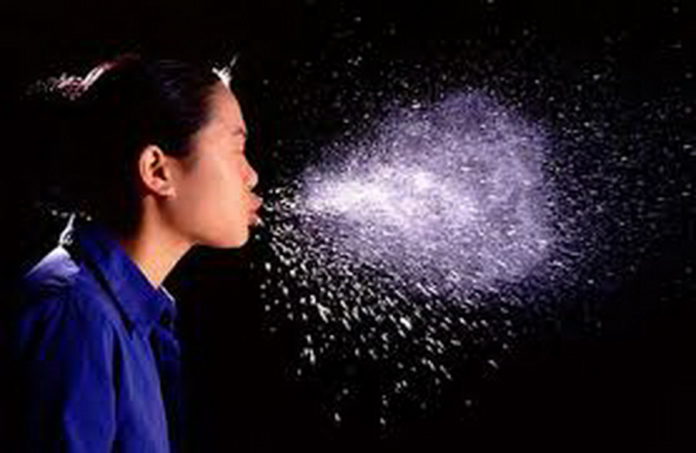Governments around the globe have introduced strict new measures to try and slow the spread of coronavirus. But what does the virus mean for your health? And what are the chances of you catching it?
Here are the answers to eight of the most common readers’ questions:
- If you recover from coronavirus, are you immune?
It is too soon to tell. This virus has only been around since the end of December, but from experience with other viruses and coronaviruses, you should have antibodies to the virus which will protect you.
With Sars and other coronaviruses we tended not to see reinfection. Now there are some reports from China of people who are released from hospital subsequently testing positive.
The key thing was that those people were no longer infectious.
- What is the incubation period for the coronavirus?
It takes five days on average to start showing the symptoms, scientists have said, but some people will get symptoms much later than this.
The incubation period lasts up to 14 days, the World Health Organization (WHO) says. But some researchers say it may be up to 24 days.
Knowing and understanding the incubation period is very important. It allows doctors and health authorities to introduce more effective ways of controlling the spread of the virus.
- How long are you ill for?
For four out of five people Covid-19 will be a mild disease, a bit like flu.
Symptoms include a fever and a dry cough. You may feel under the weather for a few days but you should be back to normal within a week or so of symptoms appearing.
If the virus gets well established in the lungs, it can cause breathing difficulties and pneumonia. About one in seven people may need hospital treatment.
- How dangerous is coronavirus for people who have asthma?
The government says some people with severe asthma could be “extremely vulnerable” to the virus. That’s because when people with asthma get respiratory infections, such as coronavirus, it can set off their asthma symptoms.
More than a million people most at risk of needing hospital treatment if they catch coronavirus – including some people with severe asthma – have now been asked to stay at home for at least 12 weeks. They should have received a letter from the NHS.
If you think you are extremely vulnerable but have not had a letter or been contacted by your doctor, you should discuss your concerns with your GP or hospital clinician.
Asthma UK’s advice is to keep taking your preventer inhaler (usually brown) daily, as prescribed. This will help cut your risk of an asthma attack being triggered by any respiratory virus, including coronavirus.
Carry your blue reliever inhaler with you every day, in case you feel your asthma symptoms flaring up. If your asthma is getting worse and there is a risk you might have coronavirus, contact the online NHS 111 coronavirus service.
- Are otherwise healthy disabled people more at risk from coronavirus?
Coronavirus can be more severe in older people and those with pre-existing conditions. These include heart and lung illnesses, and diabetes.
There is no evidence that disabled people who are otherwise healthy – and who don’t, for instance, have respiratory problems – are at greater risk of dying from, or with, coronavirus.
- Should I wear a mask to protect myself and others from the virus?
Although doctors and surgeons often wear face masks, there is little evidence that wearing face masks by the public makes a difference.
Public Health England has said they “do not recommend the use of face masks as a means of protection from coronavirus”. They say there is very little evidence of widespread benefit from their use, outside of clinical settings.
- Can you catch the virus from food prepared by an infected individual?
Someone infected with coronavirus could potentially pass it on to someone else, if the food they prepare has not been handled hygienically. Coronavirus can be spread by cough droplets on hands. Washing your hands before touching and eating food is good advice for anyone, to stop the spread of germs.

- Can coronavirus be transmitted by door handles, other surfaces and money?
If someone infected with the virus coughs on their hand and then touches something, that surface may become contaminated. Door handles are a good example of a surface that might pose a risk.
It’s not yet known how long the new coronavirus might be able to live on such surfaces. Experts suspect it is hours rather than days, but there are differences of opinion.
It is best to wash your hands regularly to help reduce the risk of infection and the spread of the virus.
The Chinese government has said that cash received by all banks must be sterilised before being released to customers, in order to reduce the spread of the disease.
Using contactless cards can minimise the risk of handling cash. However, these cards can also harbour germs and viruses.
Best practice is to wash your hands thoroughly after handling cards, coins or banknotes.

